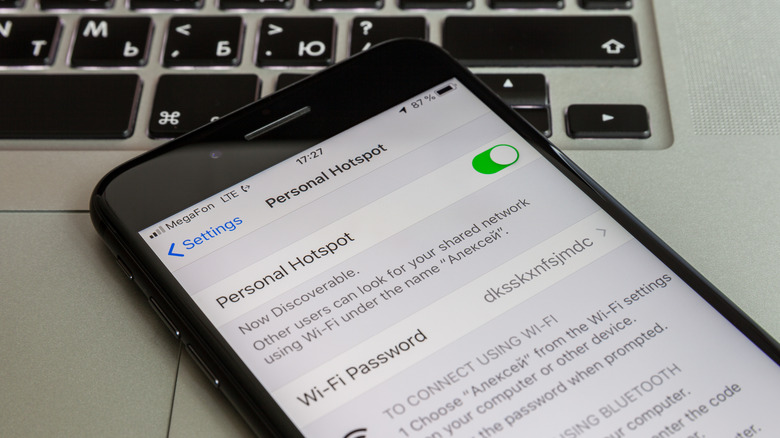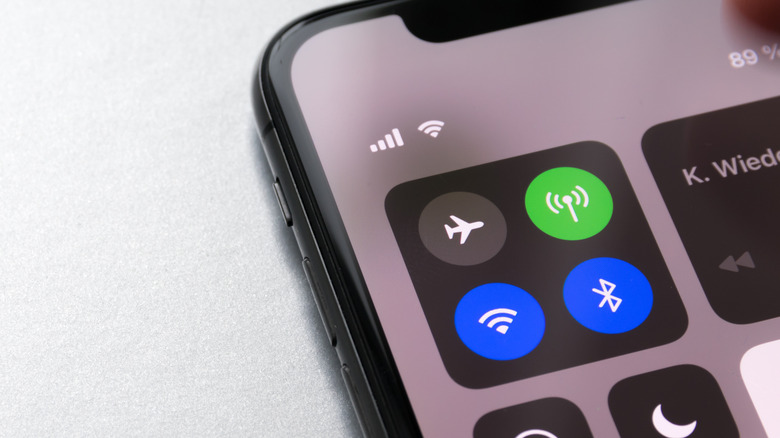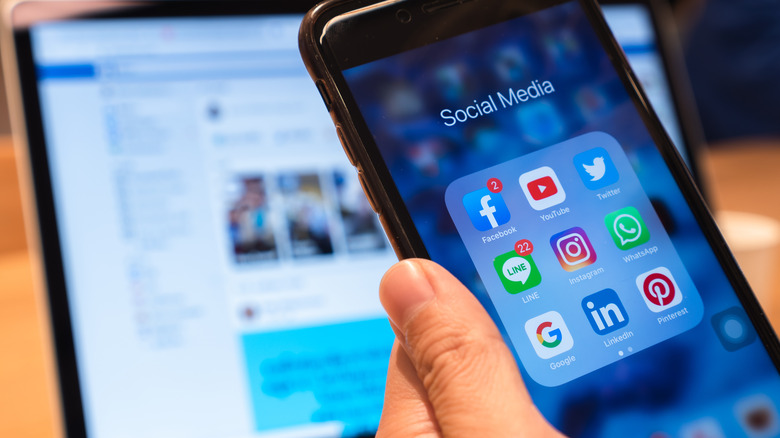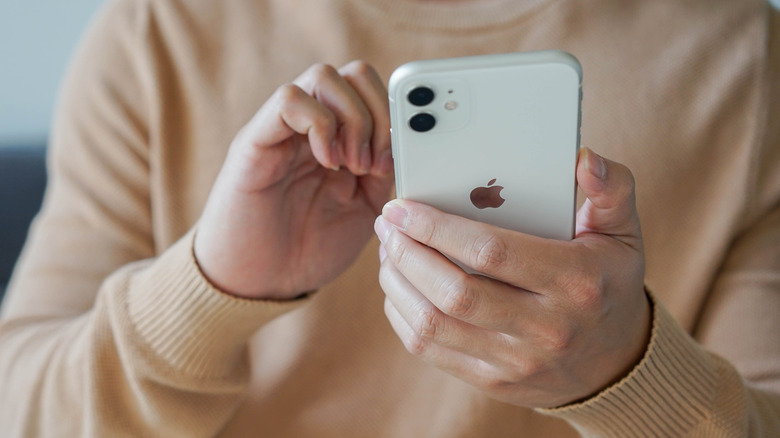How Much Data Does Your iPhone Hotspot Actually Use?
In 2022, iPhones are not just devices that can make and receive phone calls or access the internet. Apple's smartphones have evolved into multimedia hubs that can connect with other devices to form a functional ecosystem. For instance, you can pair your iPhone with a MacBook to accept or reject FaceTime calls, send messages, and control music playback. Apple has also embraced 5G networks, unlocking fast download and upload speeds, and in the process making it even more useful they act as a portable hotspot that enables devices in a close range to access the internet too.
Put simply, an iPhone in hotspot mode allows other devices that can connect to a Wi-Fi network to use iPhone's cellular data to surf the internet. The feature helps users who carry multiple devices at once, especially devices which cannot access the internet independently such as MacBooks and Wi-Fi-only iPads. However, as people use their iPhone's hotspot to access services on other devices, they might wonder how much data their iPhone's hotspot consumes: is it more than that on a Wi-Fi connection or less? Well, the answer depends on just what you do with your iPhone's hotspot.
When to use a mobile hotspot on your iPhone
Apple makes it very easy to enable the personal hotspot on your iPhone, but there are a few things that you should keep in mind. Using an iPhone hotspot consumes mobile data, which typically costs more than home broadband service might; as such, you might spend more data and money (via Wirefly). Secondly, when you activate the hotspot, your iPhone starts behaving like a Wi-Fi router that receives and transmits data between multiple devices, which increases the stress on its battery. You may notice that your battery drains faster, for example.
Beyond that, though, you should also know that the iPhone hotspot can consume a different amount of data to its normal usage, depending upon the devices connected to the hotspot and the services accessed. For instance, connecting a laptop to your iPhone's hotspot and accessing YouTube through the desktop browser will typically consume more data than accessing the video streaming service via the iPhone's YouTube app or in the mobile browser. Much in the same way, accessing Netflix through an iPhone's hotspot on a laptop will require more data than doing so on the iPhone itself.
How much data does an iPhone hotspot use?
While the actual figures vary from device to device, we have a rough idea about how just much data your iPhone hotspot uses. Some activities are relatively low-bandwidth: checking email on a device connected to the iPhone's hotspot takes less than 3MB, while downloading a track on Spotify might take anywhere between 3-5MB (via Spacehop). On the other hand, streaming Spotify music for an hour can use up to 30MB of mobile data. Browsing through social media platforms like Facebook and Twitter can take up to about 50MB per hour, while an hour of browsing can amount to 50-100MB.
More data-heavy tasks can chew through your 4G or 5G allowance far faster, however. A video call on Zoom or Skype can eat up as much as 250MB or more, per hour, depending upon the video settings of the session. On YouTube, streaming a standard definition video will take 300-400MB per hour; that can increase to 1GB per hour if you view content in 4K. Streaming services like Netflix consume up to 1GB of data for providing content at standard definition (per hour) and up to 7GB if you stream in 4K. While these figures give a basic idea, you might end up spending more data in real-world scenarios, especially as a lot of laptop data usage can go on without you actually knowing about it.
Things to take care of while using an iPhone hotspot
While Windows and macOS don't make it easy to stop background data use, there are some straightforward ways to avoid it happening too much. First, whenever you use your iPhone's hotspot to browse the internet or access any service on another device, it's best to avoid downloading new applications or updating existing ones. More often than not, desktop applications are larger in size than mobile apps, and downloading or updating them over an iPhone hotspot might be very costly or even exhaust your entire data allowance. If you're using your iPhone's hotspot to provide internet to other smartphones, meanwhile, it's wise to close any applications running in the background that could also be accessing data.
Streaming content over your iPhone's hotspot is not a good idea unless you have unlimited mobile data. However, if you have to watch the latest episode of "Stranger Things" and are not in range of a WiFi connection, it's sensible to stream in lower quality. The same goes for YouTube: watching videos in 240p or 360p resolution consumes about half of the total data spent in watching videos in FHD resolution. Additionally, monitoring the hotspot usage is a good idea in case you want to know which device is engaging the majority of your data limit. To check, head to the Settings > Mobile Data and tap on Personal Hotspot to see the list of connected devices and what data they've consumed so far (via iPhone-tricks). That way, you should avoid any unpleasant surprises when your cellphone bill arrives.



